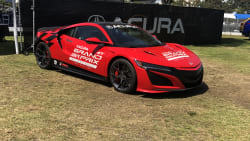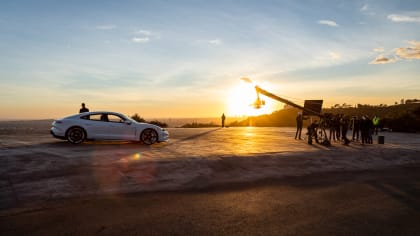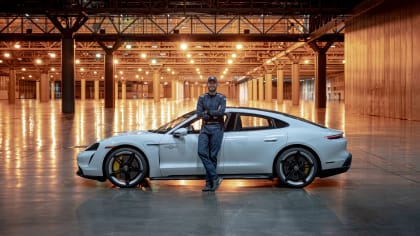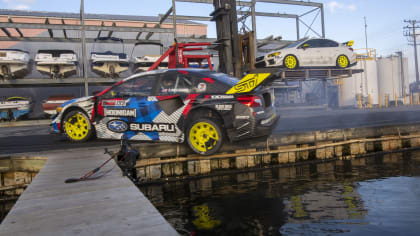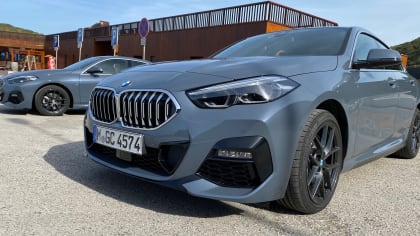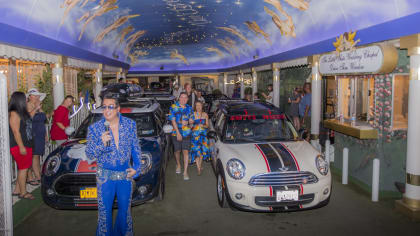Acura Grand Prix of Long Beach Part Two
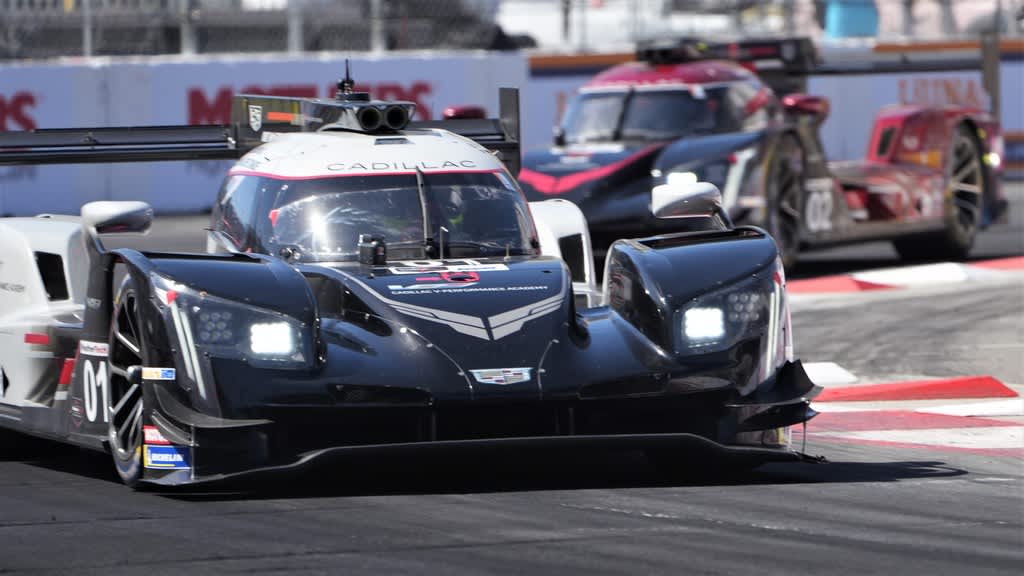
A Racer's Race Day
Reporting from Saturday at the Acura Grand Prix in Long Beach, California.
By Brian Kennedy
Sat, Apr 9, 2022 10:57 PM PST
Featured image: Cadillac DPI of Sebastien Bourdais (photo by Albert J Wong)
Long Beach, CA - It was a racer’s race day Saturday in Long Beach, with IndyCar qualifying as well as IMSA WeatherTech Sportscar racing dominating a day that also featured Porsche Carrera Cup racing, Historic Motorsports racing, and other on-track features.
Fans who go to the Acura GP of Long Beach can be broadly categorized into two groups: lifestyle people and racing people. The lifestyle folks don’t mind paying sixteen bucks for a big beer or a fistful of dollars for a giant turkey leg. They’re in the LBC to see and be seen, and some of their outrageous outfits give that away. That’s all fine, but then there are the racers, and they got their thrills on Saturday also.
Long Beach is a track that’s hard to pass on. It’s narrow, and as is evident, there are concrete walls bordering the racing surface to keep wayward ambitions, not to mention cars, in line. Thus qualifying is important, and so is surviving whatever incidents happen between the walls.
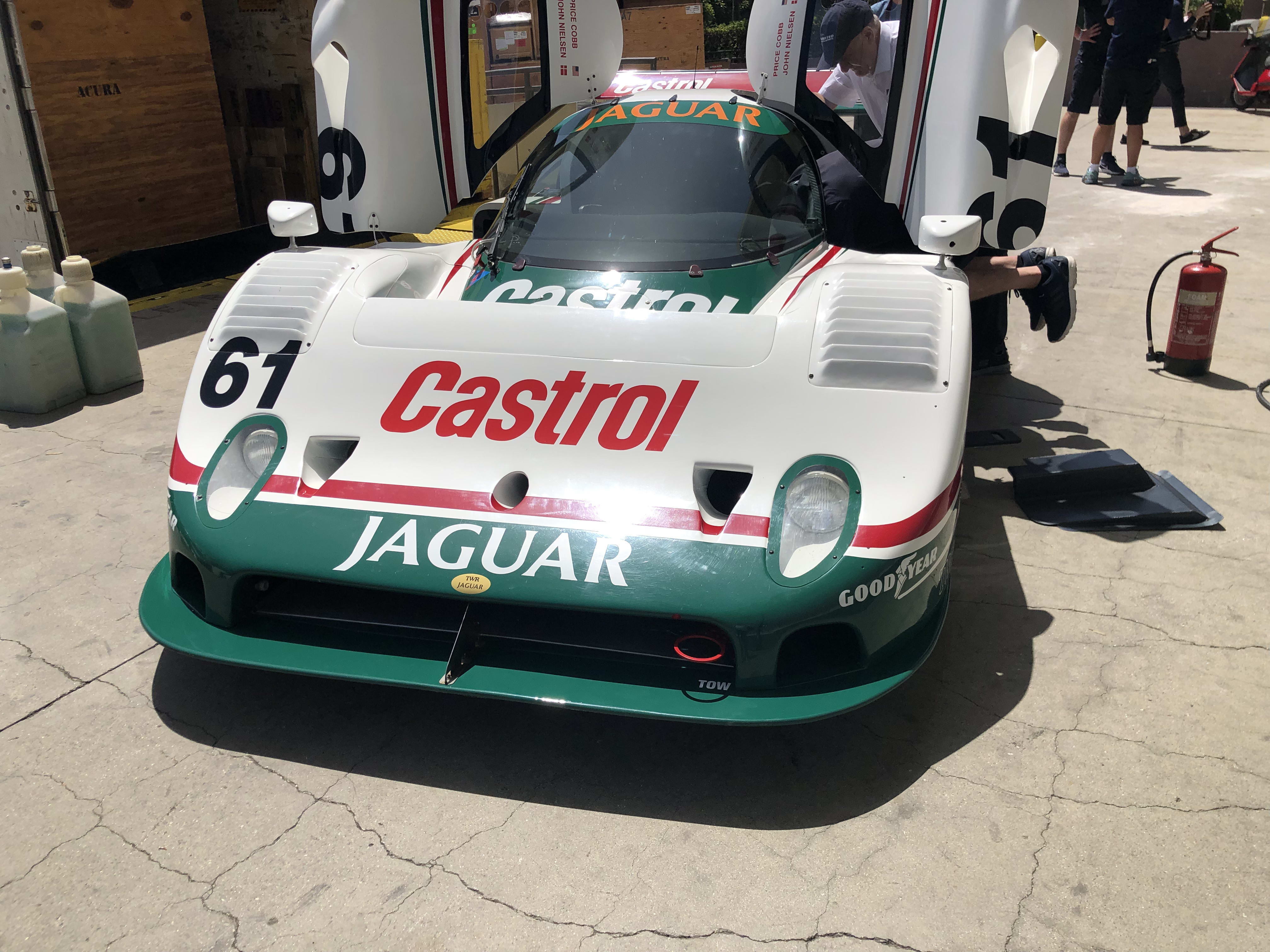
IndyCar qualifying lived up to the measure of racer excitement. It works something like this: two groups of half the field are formed, and they each go out for hot laps, trying to stay out of each others’ way in order to get an unobstructed lap. The top six of these are then designated the “Fast Six,” and they have their own session to determine the pole, as well as starting positions.
On this day, the top three were Colton Herta, last year’s winner and the holder of the fastest time to take the pole, Josef Newgarden, and Alexander Rossi.
Both Newgarden and Rossi suggested that they’d like, at some point, to see the fast six do single-car qualifying, though it was also said that it’s not difficult to put down a flyer lap with just five other cars on track, more difficult in the group of 13, which is how big the first two sessions were, given the 26 entries this year.
As it was, Herta appeared to have the pole after the Fast Six session, but a red flag with two seconds left on the clock meant that the session was not over, as it had appeared to be. The cars sat, Herta holding the track qualifying record as of that moment at 1 minute, 5.3095 seconds. He alone did not go out and try to post another lap when the green came out once more, but there was an advantage to him anyway, as the other five drivers were now running on cold tires. Nobody unseated the California kid, and he’s starting in the prime spot on Sunday afternoon, when the racing resumes for the NTT IndyCar Series.
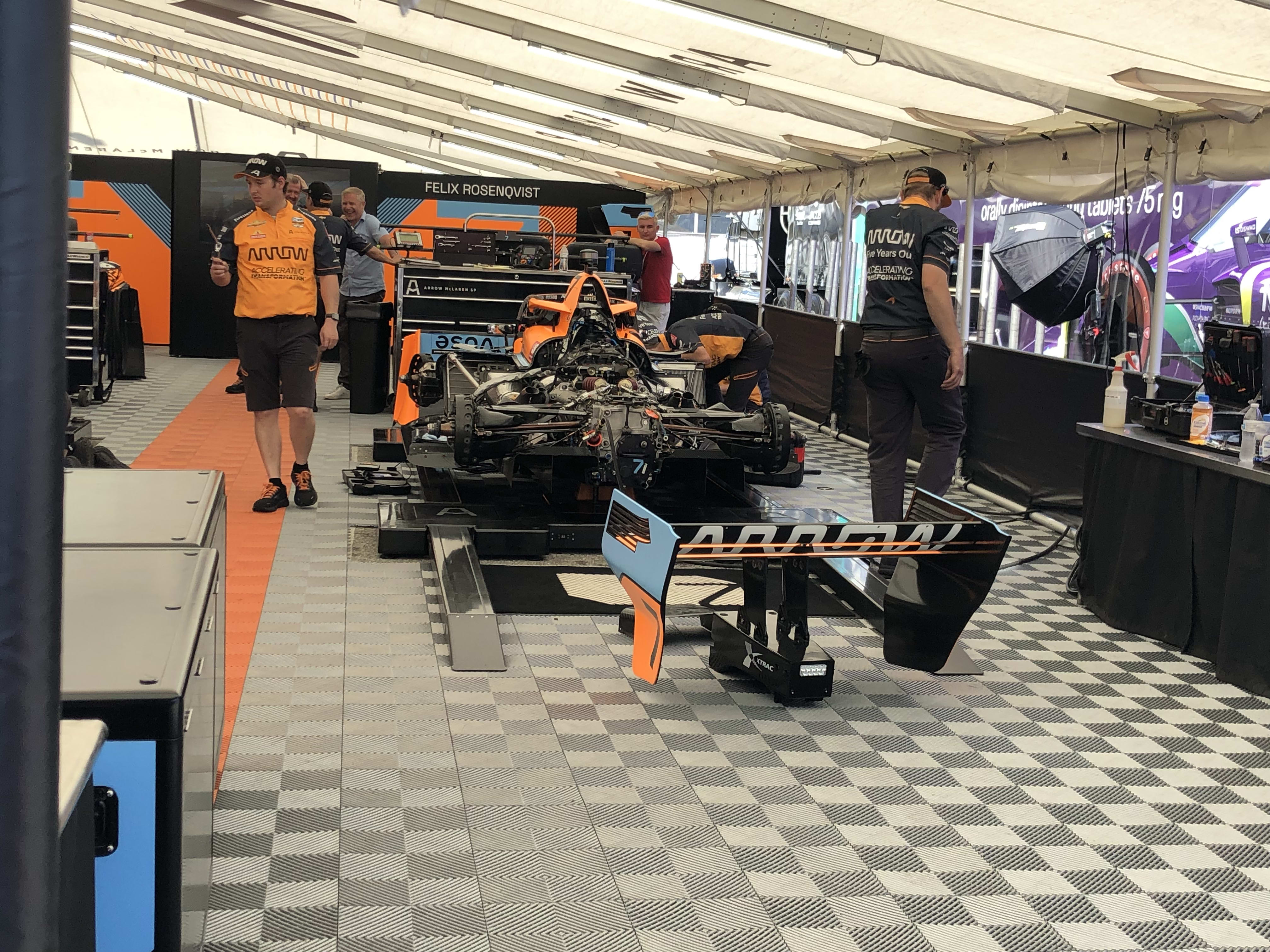
Why so fast? He attributed it to his team, of course, but each of the top three drivers also commented that there was a sealer put down, particularly around the fountain turn outside the Aquarium of the Pacific, which gave more grip and thus decreased lap times.
Following the IndyCar qualifications came the IMSA WeatherTech Sportscars race, 26 cars in three classes led by the Cadillacs of Ganassi teammates Sebastien Bourdais and Alex Lynn.
For Bourdais, who co-drove with Renger Van der Zande as the eventual winners, it was “a magical car in qualifying, had a good start . . . . [We]were pulling away and making the fuel number,” as he mentioned after the race. But just when it looked like a runaway, Bourdais got moved over too far on the hairpin turn coming back onto the front straight by a Porsche and nosed into the wall. This happened on lap seven. He got going again without assistance, but was 21 seconds behind the lead. Before you knew it, he was back up to second place, and back in the lead by lap 29. Perhaps his history of winning at Long Beach three different times in IndyCar played a part in this.
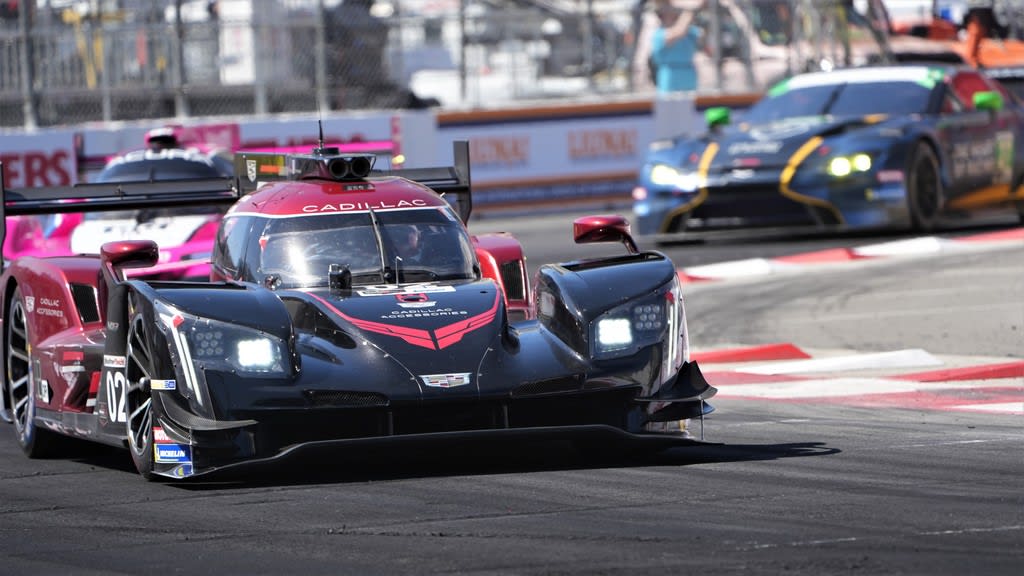
His tandem won the event in 60 laps over 100 minutes. There were five cautions, an unusual number. Three of the six DPI group (the fastest group) drivers in two cars led at different times. The other two classes, GT Daytona and GTD Pro, each had three leaders, though in GT Daytona, this was representative of only two cars.
After the race, Bourdais described his emotions. “I wouldn’t say I was angry. I was angry at myself, because I really completely underestimated that he could turn out this way because I was going down the inside and at the hairpin, I’ve never had that kind of result. It was completely unexpected. I thought it ruined our chances, but thankfully I had enough of a pace advantage that I could make up for my screw-up. It takes a wonderful car to be able to push [this way] and to go at these kind of limits.”
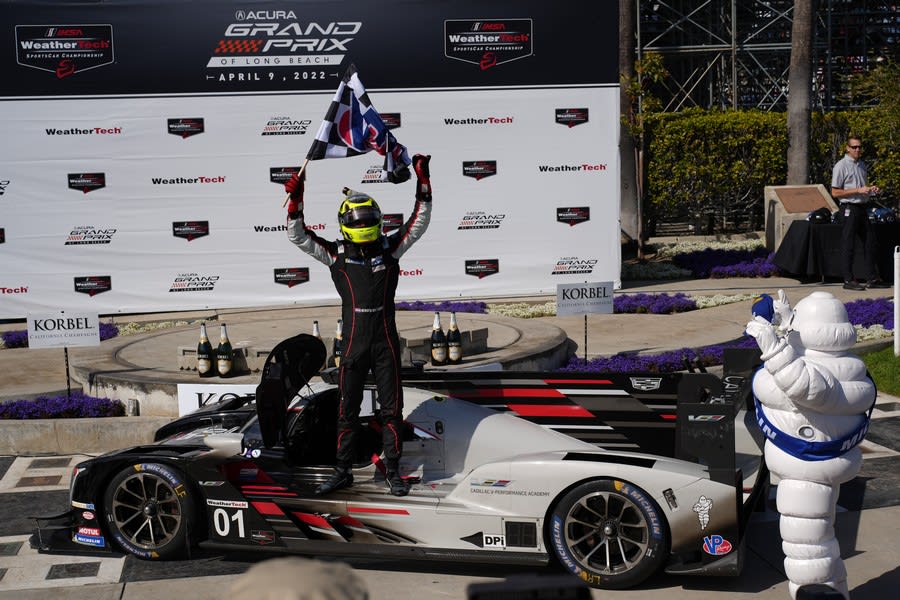
Normally this series has five classes, but if they did that at Long Beach, the track, already confined as noted above, wouldn’t be able to handle that much traffic. Note also that this series is coming off of two long endurance races, at Sebring and Daytona, and now running their shortest race at Long Beach. The points for this race don’t count towards the season’s championship, but rather towards a different trophy, contested amongst the shorter “sprint” races.
When driver Madison Snow, who won the GTD race co-driving with Bryan Sellers, was asked about this mini championship, he was refreshingly frank: “ I still think IMSA has too many championships. The only one that matters is the main one, and we’re not going for that one because we didn’t race Daytona.” What does he think of European football, with its millions of in-season cups, one wonders?
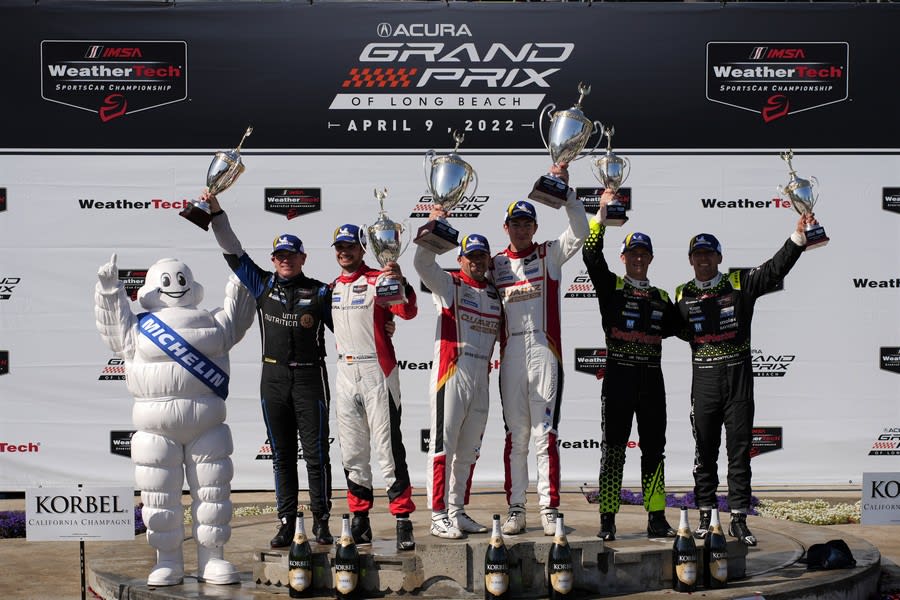
One more racers’ delight graced the day, the classic sportscars, or “Historic GTP.” If you’re picturing old Jags and Astons with scarf-clad drivers, that’s not what this was. These cars, the oldest of which was built in 1979, were mostly children of the 1980s. The newest was a 1992. They are more like modern GT prototype cars than not.
I spoke with an engine builder connected to the Castrol-liveried 1989 Jaguar XJR10. The Jaguar came over from England on a plane. It will be in the US until September and will do the Rolex Reunion before heading back to England. It has been rejuvenated and used for the past three years after being retired a few decades ago and becoming essentially a show car, according to Haigh. He works for United Auto Sports, incidentally, which is in Wakefield, near Leeds.
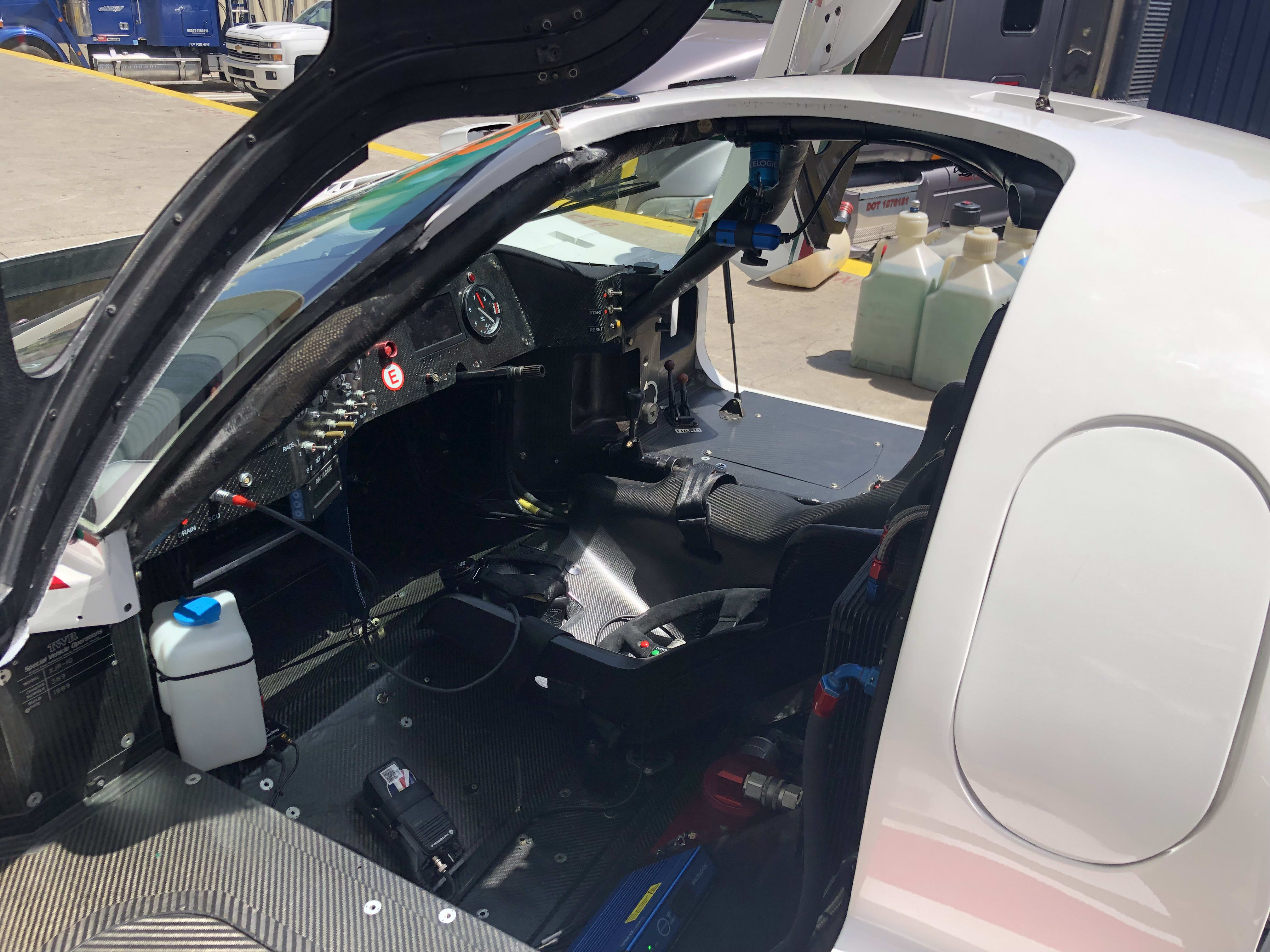
“People love the car because lots of people remember it,” Paul said. When asked how it compares to the IMSA cars running today, Haigh said, “They’re not so far apart. They’ve maybe got more downforce now since everything’s more restricted nowadays, isn’t it? This has more power than the modern ones. The modern ones have, I think, about 640 horsepower. This has got 850.”
Under the hood (metaphorically—the engine is behind the driver), things look incredibly complicated, and beautiful, with a complex of pipes and outlets feeding the twin turbo engine.
Zak Brown owns and was running the car. Brown is the CEO of McLaren Racing, which has an IndyCar team but also F1, obviously—so Brown is in a sense playing hooky from his Formula One duties for the weekend. He was willing to do so because, according to someone I talked to at the track, Brown reveres Long Beach. He is American, rather than British, if that factors in somehow.
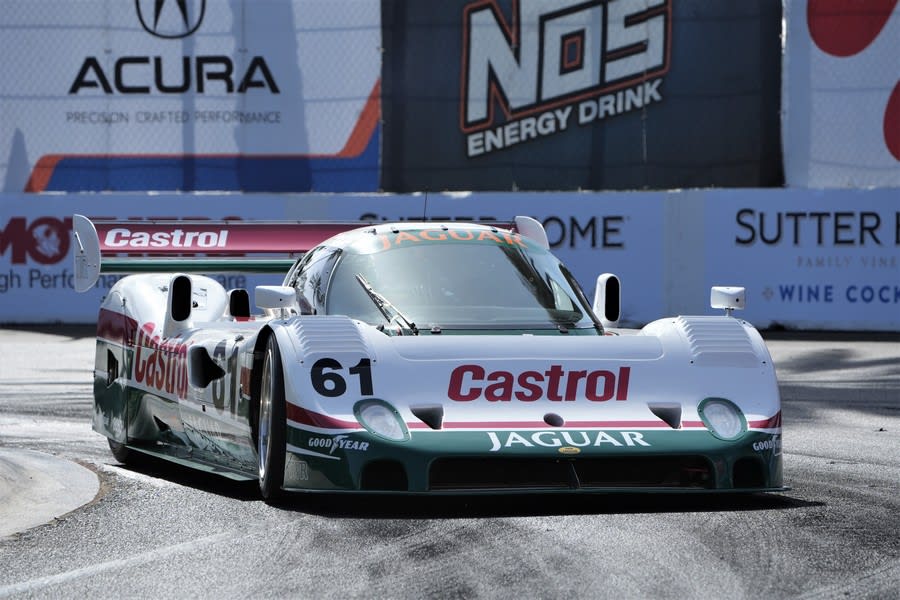
Times for this group of cars were around 1:23, over against around 1:10 for the IndyCars and 1:20 for the IMSA Sportscars.
There were a couple of other interesting LBC moments Saturday, as when Robby Gordon’s son Max, a 13 year-old, home-schooled kid won the Super Stadium Truck race. He even used the bumper to stake his claim for territory on the track, something dad was never shy to do in his varied racing career. These trucks go again on Sunday.
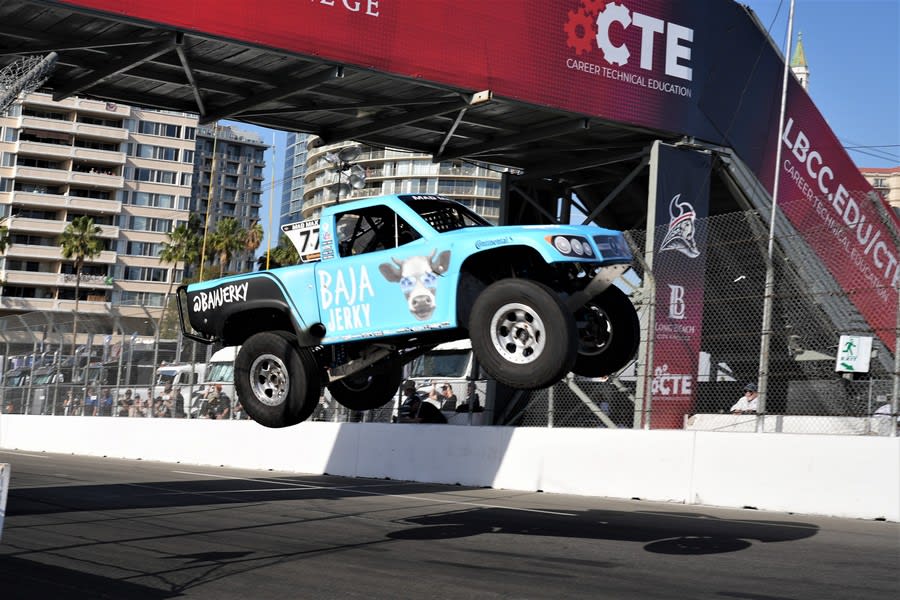
The evening ended with Formula Drift staging an event as darkness fell on the coast.
Sunday everything cranks up again, with the IndyCar race obviously the big feature and the classics running again, as well as the trucks and the Porsche Carrera Cup series rounding out the day, which should be all wrapped up by 5pm.
About The Author

Brian Kennedy always wanted a ’66 Mustang. 10 years ago, he bought one – and he’s been restoring it ever since. Brian extended his passion for cars by covering events for magazines like Grassroots Motorsports, Sportscar, and Victory Lane – e.g., events in Cart, Pro Rally, Formula Atlantic, the SCCA Runoffs, Trans Am, SVRA, VSCDA, and VARA. He’s also profiled a number of cars and interviewed a number of personalities – among them: Gene Felton (IMSA), Hurley Haywood, Jerry Seinfeld, and Nigel Olsson.
